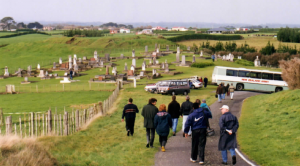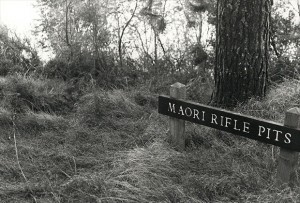It was disappointing that 28 October was chosen as the new New Zealand Wars Day. This was because the day has nothing to do with the New Zealand Wars.
In 2016, a gathering of tribal leaders decided that New Zealand’s Land Wars would be commemorated on 28 October, commencing in 2017. The decision was made at the invitation of the Minister Of Māori Affairs who had received government funding to support commemoration events.
But why was this date chosen? It’s the day, we are told, that the earlier Declaration of Independence was signed, in 1835 in the far north, between the tribes of Ngā Puhi and British Resident Agent, James Busby. The date 28 October, hoswever, has no direct reference to New Zealand’s Land Wars.
Pākehā historians like James Belich have long argued that the wars were ‘wars of sovereignty’. This date, 28 October, buys into that argument by foregrounding the issue of Māori sovereignty, rather than choosing an actual wars date.
Māori historians, by contrast, have argued that, for Māori, te tino rangatirantanga lay in the land, and was indistinguishable from the land, and the continuing possession of it. Tribes fought, and died, to protect this.
An over-arching ‘sovereignty’ sounds fine, but for Māori it was something always grounded in the land.
October 28 denies to Māori the devastating costs of those conflicts, fought for their te tino rangatirantanga, embedded in the tribal estates.
Better Dates – 17 March or 20 November
A better date might have been 17 March, when the wars started at Te Kohia, near Waitara. The Taranaki Daily News has recently published an interesting article about the Te Kohia Battle site – you can read it here : Te Kohia Battle Site .
Another date is 20 November, when Rangiriri was attacked by British forces. Rangiriri was the defining battle of the wars, where, for Māori, the wars were lost. You can read more about Rangiriri, and the Waikato Wars, here – the Battle for Rangiriri.
If anything, 28 October represents, not a sense of history, but modern Māori political realities, representing the state of Crown-Māori relations today which are centred on still outstanding issues of Māori autonomy, or sovereignty.
The date is less about the wars, and more about Māori seeking continuing political leverage. Much of the push for a ‘New Zealand Wars Day’ actually came from young Pākehā students, assisted by prominent Pākehā historians. Perhaps it was more about Pākehā developing a much belated historcial conscience, successfully harnessing Māori leadership to that end.
A date more reflective of the actual Māori experience of those wars, with all of the hurt, dispossession, loss and devastation has been by-passed, and that is a great shame.





